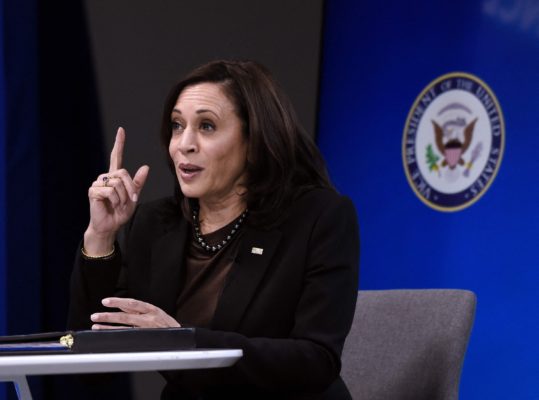
US vice president and Israeli leader say court in The Hague has no jurisdiction over the issue as prosecutor pledges impartial probe.
US Vice President Kamala Harris, in a call with Israeli Prime Minister Benjamin Netanyahu has reaffirmed the United States’s opposition to an International Criminal Court (ICC) investigation into possible war crimes in the Palestinian territories, the White House said.
![The call, the first between the two since Vice President Kamala Harris and President Joe Biden took office in January, came a day after the ICC prosecutor said she would launch the probe, prompting swift rejections by Washington and the Israeli government [File: Jonathan Ernst/Reuters]](https://www.aljazeera.com/wp-content/uploads/2021/03/2021-03-03T021743Z_631006391_RC2E3M9XFEKH_RTRMADP_3_USA-BIDEN.jpg?resize=770%2C513) The call, the first between the two since Vice President Kamala Harris and President Joe Biden took office in January, came a day after the ICC prosecutor said she would launch the probe, prompting swift rejections by Washington and the Israeli government
The call, the first between the two since Vice President Kamala Harris and President Joe Biden took office in January, came a day after the ICC prosecutor said she would launch the probe, prompting swift rejections by Washington and the Israeli government
The call, the first between the two since Harris and President Joe Biden took office in January, followed the ICC’s announcement of the investigation on Wednesday.
The court determined in February that the occupied Palestinian territories fall under its jurisdiction, paving the way for an investigation of war crimes committed by Palestinians and Israelis.
Chief Prosecutor Fatou Bensouda has promised the inquiry will be conducted “independently, impartially and objectively, without fear or favour”.
Bensouda, who will be replaced by British prosecutor Karim Khan on June 16, said in December 2019 that war crimes had been or were being committed in the West Bank and Gaza Strip.
Bensouda named the Israel army and armed Palestinian groups such as Hamas as possible perpetrators.
During Thursday’s call, Harris and Netanyahu noted their governments’ “opposition to the International Criminal Court’s attempts to exercise its jurisdiction over Israeli personnel,” the White House said.
A day earlier, US Secretary of State Antony Blinken also said that Washington “firmly opposes and is deeply disappointed” by the ICC decision.
“Israel is not a party to the ICC and has not consented to the Court’s jurisdiction, and we have serious concerns about the ICC’s attempts to exercise its jurisdiction over Israeli personnel,” Blinken said in a statement.
Harris and Netanyahu also agreed to continue to cooperate on regional security issues, specifically Iran’s nuclear programme and its “dangerous” behaviour, the White House statement said.
Harris “emphasised the United States’ unwavering commitment to Israel’s security,” the statement added.
Biden’s bid to revive a 2015 nuclear agreement between Iran and world powers, however, sets him and Netanyahu on a potential collision course.
The Israeli prime minister opposed the nuclear deal and had applauded former President Donald Trump’s decision to abandon it in 2018.
Harris also congratulated Netanyahu on Israel’s coronavirus vaccine programme and they agreed to increase cooperation on the coronavirus, water, green energy and other initiatives, the White House said.
Israel has released the world’s fastest vaccination campaign, administering at least one dose to more than half its 9.3 million people and the required two doses to about one-third of its population in less than two months.
In contrast, the Israeli-occupied Palestinian territories have struggled to have its people vaccinated due to lack of access and financial means.
Critics contend that Israel is responsible for vaccinating the Palestinians under occupation.
The Palestinian Authority (PA) earlier condemned Israel’s plan to send coronavirus vaccines to far-away countries while ignoring the five-million-strong Palestinian population living kilometres away under its military occupation as an “immoral measure”.
